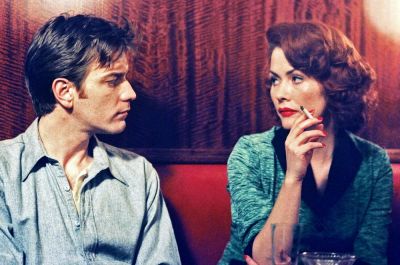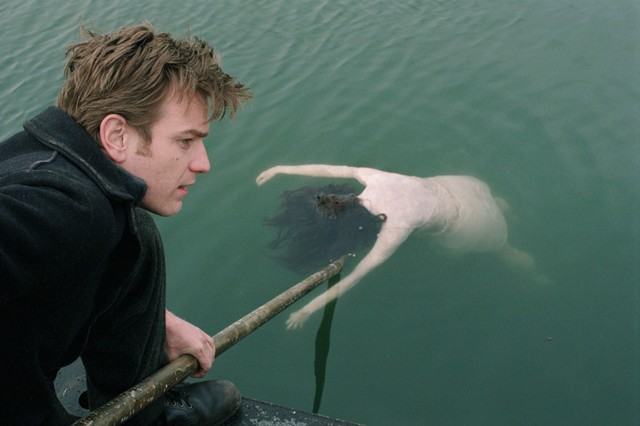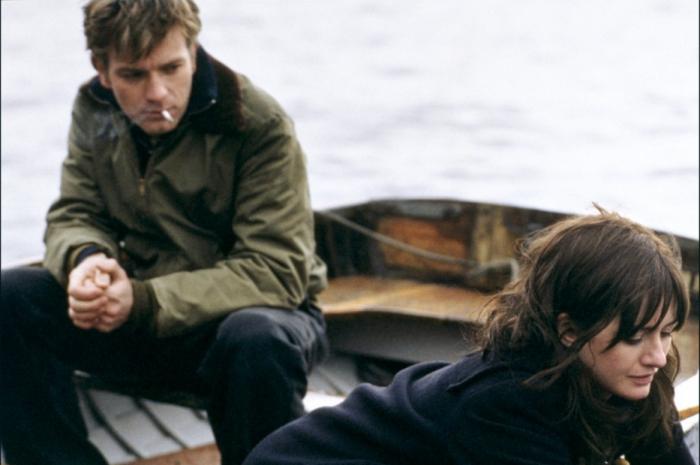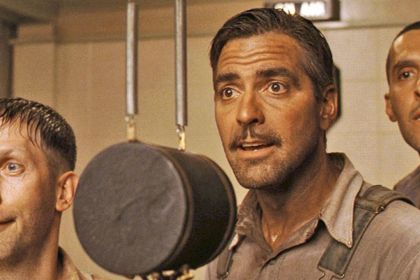FILM
Young Adam score captures the desolate landscape of the 50s Scotland

Ewan McGregor and Therese Bradley in Young Adam
Composer: David Byrne
An adaptation of Scottish writer Alexander Trocchi's loosely autobiographical novel, Young Adam is a harsh portrait of a desolate social climate in constant decline set against the backdrop of 1950s Glasgow in the time of post-war desperation and low wages.
A young drifter Joe (Ewan McGregor) helps out on the barge of a married couple Les (Peter Mullan) and Ella (Tilda Swinton). It is clear that Joe has been having an affair with Ella for some time, though she is only the latest of his many conquests. The relatively quiet life on the barge is disrupted by Joe and Les pulling a corpse of a young woman out of the river which prompts a series of flashbacks into Joe’s past as a womanizer filled with directionless pursuits and misogynistic energy.
The source novel, originally published as a “dirty book” in 1954, was re-edited by Trocchi to be issued by a “reputable” publisher at a time when the use of graphic sex scenes and pornographic tropes in literary novels had yet to become a popular postmodern device. David Mackenzie's film adaptation never shies away from the explicit scenes of the novel but there is no indulgence in it: what could have easily been an exercise in cinematic gratuitousness is instead an integral part of the narrative and Joe’s depraved character.

Here life on the canals is grimy and brooding, cramped and stale and so vivid it is possible to feel its damp misery on your skin. The film’s tangible period atmosphere is supported by the disjointed non-linear structure of the narrative and subdued score.
The soundtrack, written by Talking Heads founder David Byrne, was released under the title Lead Us Not into Temptation. All songs were written by Byrne with the exception of Haitian Fight Song by Charles Mingus.
One of the standout tracks is Inexorable and it directly invokes Byrne's early work with Talking Heads, yet the song was arranged with an absolutely classical approach. A simple piano solo builds into a growing avalanche of strings that lead to a massive structure in the track's second half. As tension builds, distorted and eerie vocals finally break out to imitate a cello part:
The Great Western Road is a solemn and spacious ballad that instantly warrants attention from its crisp opening chord. The lyrics assume the film’s depressing hopelessness, as tangible as the dirt and damp of the air. The triple meter gets the chorus a vibrant waltz treatment that gradually dissolves into a dance by the closing sequence when the piano takes over:
From the film's opening shots, David Byrne’s mournful music is a low-key yet palpable presence that pierces through the cold blue world of Young Adam, becoming one with its destitute landscape.



![[H]ouse playlist is a remedy for everyone](https://musictales.club/sites/musictales.club/files/styles/mt_large_fix/public/field/image/hugh_laurie.jpg)
